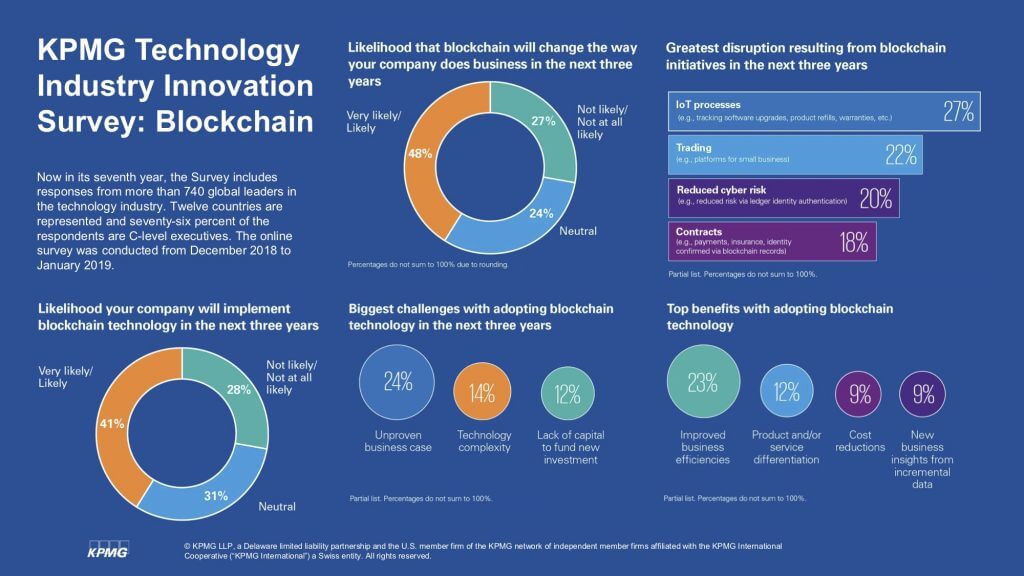
Technology executives expect the Internet-of-Things (IoT)
processes (27%) to be one of the greatest blockchain disruptors over the next
three years, followed by trading (22%), reduced cyber risk (20%) and contracts
(18%), found a new study by KPMG.
“The technology executives we work with are also exploring
the convergence of IoT, artificial intelligence (AI) and blockchain to optimize
the potential benefits these technologies provide,” said Tegan Keele, US
blockchain program lead at KPMG.
“For example, blockchain can provide a reliable way to trace
and verify how IoT-enabled routers, chips, and other technologies communicate
internally and externally – blockchain can also offer a secure mechanism to
protect the data exchanged, which will be increasingly important as 5G networks
emerge.”
Two industrial giants, Bosch and Volkswagen, are among
companies that are taking seriously the idea of merging blockchain with the
IoT. Both German firms teamed up with fellow-country, decentralized transactional platform IOTA on various development projects.
Last year, Bosch integrated
its new data collection IoT device with the decentralized IOTA Data Marketplace.
Volkswagen plans
to launch Digital CarPass, a product that will see the IOTA network track
data such as mileage for the evaluation of car performance in the firm’s cars, in
early 2019.
A study conducted by major Dutch cybersecurity firm Gemalto,
released
in January 2019, found that blockchain adoption in the IoT industry more than
doubled over the last year. Surveying 950 information technology (IT) and
business decision makers globally, Gemalto found that a quarter (23%) of respondents
believe that blockchain technology would be an ideal solution to use for
securing IoT devices, with 91% of organizations that don’t currently use the
technology are likely to consider it in the future.
According to the 2019 KPMG Technology Industry Innovation
Survey, a study that includes responses from more than 740 global leaders in
the tech industry, C-level executives believe that blockchain can improve
business efficiencies (23%). Respondents also cited product differentiation (12%),
cost reductions (9%) and new business insights from incremental data (9%) as top
benefits with adopting blockchain technology.
“In my recent conversations with technology leaders, they’ve
indicated that they want to continue doing what they’re doing – but better.
They’re examining ways to achieve core operational efficiency by improving
current processes, while also saving on costs,” Keele said.
“Blockchain is increasingly being recognized as a way to
drive those operational efficiencies, especially with broad, distributed
processes that require exchanging data with multiple internal and external
parties which have traditionally been some of the most challenging to optimize.”
48% of respondents said they believe blockchain will change
the way their company does business, and 41% indicated that their company will
likely implement blockchain in the next three years.
Respondents cited unproved business case (24%), technology
complexity (14%), and lack of capital to fund new investment (12%) as the three
biggest challenges to adopting blockchain.


